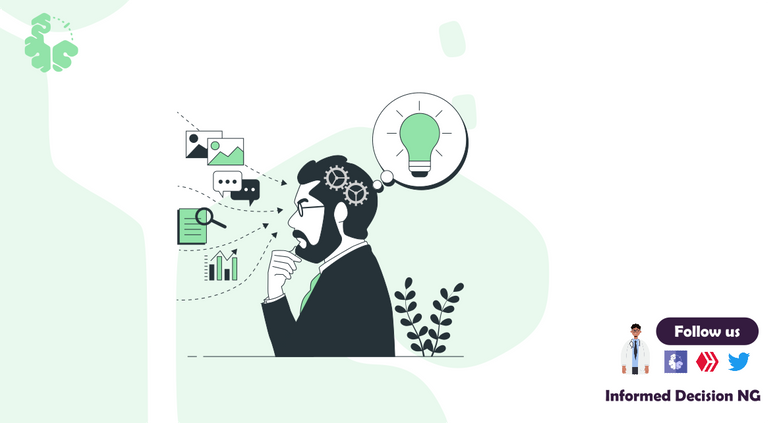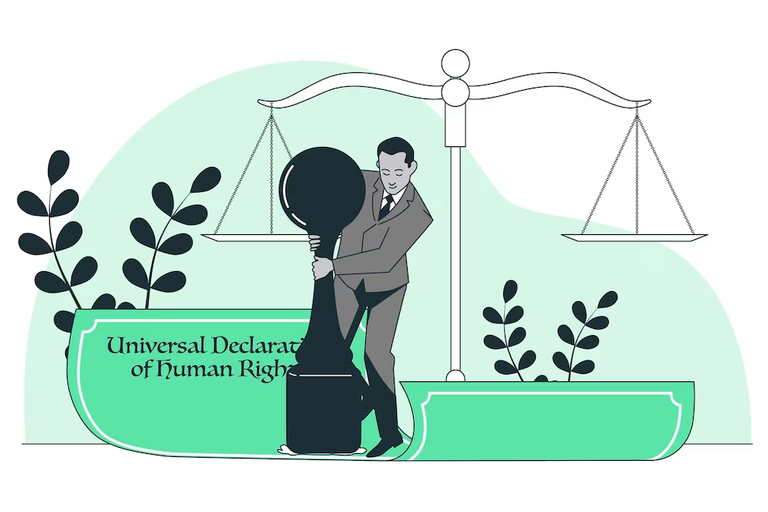
People illustrations by Storyset
Sometimes, I think about how imperfect I am and how some of my plans fail not because of external factors but because of the efforts I put in during the process. What could I have done to make it better?
While self-reflecting, I ask myself what I want to do, where I want to go, who I want to be, and when I want to be. It also includes what I am right now and where I have been, what I have been doing in an objective manner without much judgment or defensiveness. It is an honest conversation with myself about myself.
I also ask myself how well I have managed my emotions in relation to other people around me. What triggered me at that time, and why didn't I respond that way at another time? Which reaction gave the best results, and how can I keep my reaction to the environment and the reactions of others balanced?
What am I thinking? How do I feel? How am I behaving? What does all this mean on the broader scale of my existence? Who am I? What am I doing? And what do I want to be doing with my life?
A large part of who we eventually become is a result of self-reflection. Through self-reflection, we know what we value, what our motivations and drives are in life. We can know our strengths and weaknesses, and we understand how we behave in relation to the world around us.
In this post, we will be discussing some key concepts that are all involved in self-reflection, such as self-awareness, self-regulation, authenticity, and identity.
Self-Awareness

People illustrations by Storyset
Self-awareness is the ability to recognize and understand oneself, including one's thoughts, emotions, behaviors, strengths, weaknesses, and values. It involves being conscious of one's own internal states, beliefs, and experiences and having a clear perception of how these aspects of oneself influence and interact with the external world.
Being aware of oneself includes being alive in your thoughts, emotions, and values, knowing that they exist and knowing what they are. It helps the individual to have a strong understanding of their own needs, desires, and aspirations.
To be self-aware also means that you know how you are seen by others and are aware of how your behavior might affect others. Besides behavior, it also includes your words and body language and keeping space for feedback and other views.
Being self-aware means that you do not underestimate what goes on in your mind.
It is not the thoughts we have that destroy us; it is the thoughts we hold on to that do.
I stole that quote from one of my favorite TikTok psychiatrists.
Know the thoughts that go on in your mind that should be overcome, the ones that should never be said, and the ones that can be developed and articulated.
Self-Regulation

People illustrations by Storyset
This is discipline, and it is what keeps us anchored to our goals. If you are not disciplined, then there is no goal attainment; there is just random motivation/pleasure seeking that gets us nowhere.
Existentialist psychologists argue that humans are responsible for the meaning they derive from life. In this regard, we all are at different points in our lives seeking the meaning of life. Life presents challenges to everyone, and everyone is free to determine what they will make out of those challenges.
Self-regulation is a large part of the responsibility to commit to in life. Without this mechanism, we really cannot say that we are on our way toward any real target. The probability that one stumbles upon meaning in life is zero without responsibility.
Imagine someone throws a basketball through the basketball hoop and gets it without aiming in any way. Now imagine that the shooter and the hoop are in random places in the world, and the ball magically gets in out of luck! That is what people insinuate when they hope for their life to be fixed by accident.
I would argue that successful self-reflection is knowing more about what will not be done than what will be done. There are many deterrents (an infinite number) between the target and the shooter and their eventual goal.
Authenticity and Identity

People illustrations by Storyset
Another big part of who we are is how we identify ourselves to be. Are we original? How genuine are we? How true are our motives for doing whatever it is we are doing?
I remember struggling with imposter syndrome during my first few months of practice as a general practitioner, not having anyone's support and doing what I knew to be right. Choosing to be more comfortable in my knowledge and who I was allowed me to be my true self.
Authenticity means being true to oneself and aligning one's thoughts, actions, and values with one's genuine identity. It involves living in accordance with one's beliefs and being honest with yourself and others in thoughts and deeds.
Authenticity also has to do with accepting yourself, expressing yourself, and embracing your unique qualities.
Identity, on the other hand, has to do with a sense of self, your beliefs, values, interests, roles, and social affiliations. Who we choose to identify as has a lot to do with our experiences, the culture, and the broader society around us, relationships, and how we perceive ourselves to be.
Conclusion
In conclusion, self-reflection serves as a powerful tool for personal growth and self-improvement. Through self-awareness, we gain a deeper understanding of our thoughts, emotions, behaviors, strengths, and weaknesses. This awareness allows us to navigate the world with greater clarity and make conscious choices aligned with our values.
Self-regulation, a key aspect of self-reflection, empowers us to exercise discipline and stay focused on our goals. It is through self-regulation that we take responsibility for creating meaning in our lives and actively work towards our desired outcomes. By acknowledging our own agency, we can overcome challenges and shape our paths with intention.
Authenticity and identity play vital roles in the process of self-reflection. Embracing our true selves and aligning our thoughts, actions, and values with our genuine identity enables us to live in accordance with our beliefs. Authenticity requires accepting ourselves, expressing our unique qualities, and being honest with ourselves and others. Our identity, shaped by our experiences, culture, relationships, and self-perception, influences how we navigate the world and define our place within it.
Self-reflection invites us to ponder important questions about our aspirations, desires, and the broader meaning of our existence. By engaging in honest conversations with ourselves, we gain insight into our thoughts, emotions, and behaviors, leading to a deeper understanding of who we are and what we want to achieve in life.
Ultimately, self-reflection is an ongoing journey that allows us to grow, evolve, and live authentically. By integrating self-awareness, self-regulation, authenticity, and identity into our lives, we cultivate a greater sense of purpose, fulfillment, and harmonious connection with ourselves and the world around us. So, let us embrace the power of self-reflection and embark on a path of self-discovery, self-improvement, and genuine self-expression.

With self-reflection, we will discover many aspects of ourselves that can aid us in transforming into who we want to become. I'm a big proponent of self-awareness and I try to practise it every minute of the day. I often joke that purely from observations, many people are sleep walking through life when they're not self-aware. Great and informative post!
Thanks for your contribution to the STEMsocial community. Feel free to join us on discord to get to know the rest of us!
Please consider delegating to the @stemsocial account (85% of the curation rewards are returned).
You may also include @stemsocial as a beneficiary of the rewards of this post to get a stronger support.